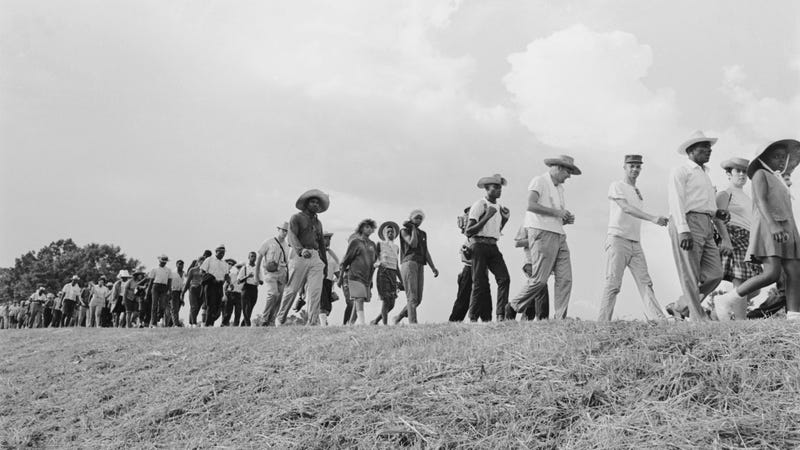
PHILADELPHIA (KYW Newsradio) — Wharlest Jackson was a Korean War veteran and a Mississippi NAACP leader who was murdered in 1967 in the Deep South. His murder is still unsolved, and the cold case has become the focus of a PBS Frontline documentary called American Reckoning. The film takes the viewer back to the civil rights era to examine Jackson's murder.
Listen to the full KYW Newsradio In Depth podcast below.

It also looks at the Black opposition to racist violence in the South, including an armed resistance group called the Deacons for Defense and Justice that fought against the Ku Klux Klan to protect protesters.
"There are probably thousands of crimes, murders that were perpetrated against Black people, mostly in the south in the 60s. They've gone unsolved," said co-director and co-producer Brad Lichtenstein.
"About 150 of those crimes were part of an FBI effort to look into cold cases, which generated a list that eventually was written into the legislation that (late civil rights leader and Congressman John) Lewis authored to officially reopen these cases. We examine these cases."
Lichtenstein said none of the cases resulted in a conviction or indictment.
Wharlest Jackson, Sr.'s case re-opened in the process, a case most people had never heard of.
"But in this story, we were able to discover not just a story of foot soldiers in the civil rights movement who had not ever really been understood, known and recognized, but also a strategy that did not conform to the overall narrative of nonviolence," Lichtenstein said.
Co-director and co-producer Yoruba Richen described Jackson as a Korean War veteran, a husband and father of five who focused on guarding his family from the evils of racism.
"He was protecting his children from the violence from, knowledge of the violence that was all around them," said Richen.

"He himself was in some ways a marked man, because of his work and civil rights."
Richen described how his leadership position at the Armstrong Tire Plant in Natchez, Mississippi, a workplace with KKK members, and his roles with the Deacons for Defense and with the NAACP made him a target.
"He's one of so many people that we don't hear about in terms of their local fight for justice, and how that local fight is his part of the national Black freedom struggle," she said.
"At the funeral of Wharlest Jackson, a man in the audience of the funeral in the procession says 'They've been killing us here for 400 years,' and then goes on to say, 'Wake up white people, before it's too late,'" Lichtenstein added.
"We named the film American Reckoning because we want to connect that past to the present, that there's so much that is said in our film which takes place over 50 years ago that could be said right now in the streets of Minneapolis or Ferguson, or for that matter, really any city in America."
Richen and Lichtenstein offer much more on the presence of white denial, how legislatures are attempting to pass laws that would hinder the teaching of America's history of racism, and how important the documentary's release is at this particular time.
They also ask the question about the families of Jackson and the other victims of racial violence over the decades, "What does justice look like?"
Listen to their full conversation on KYW Newsradio In Depth below.



